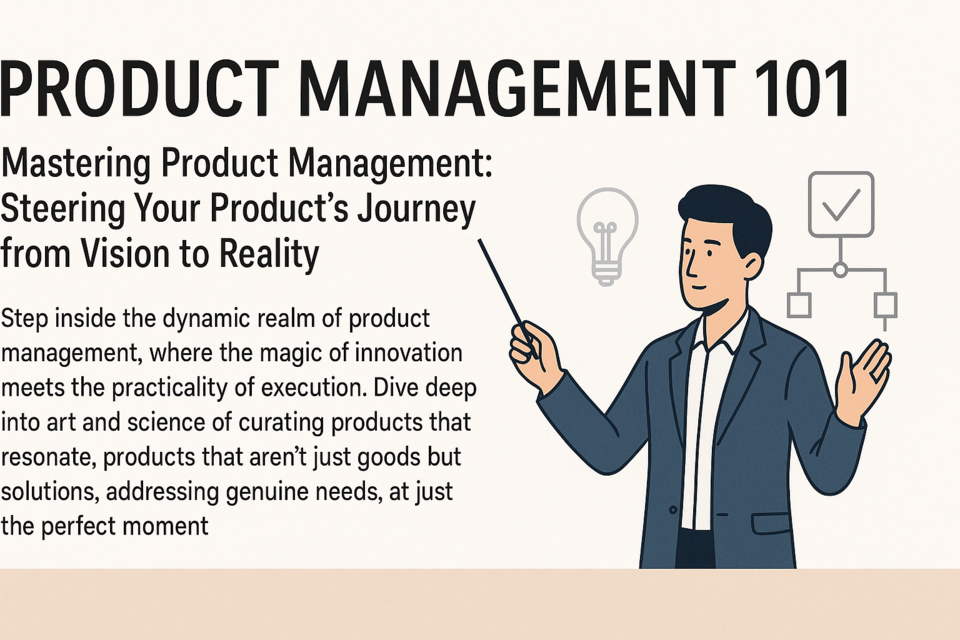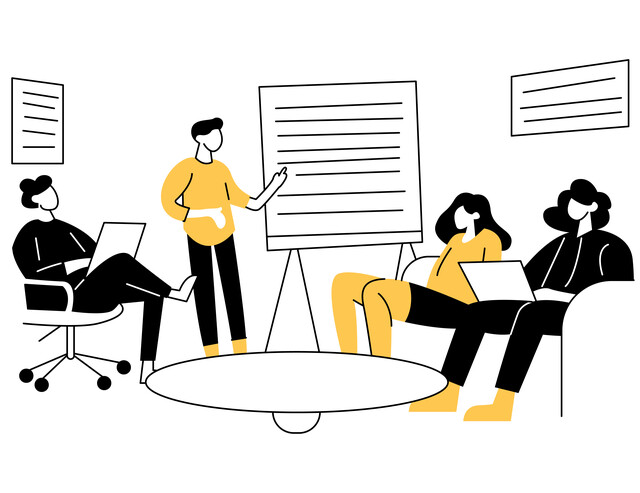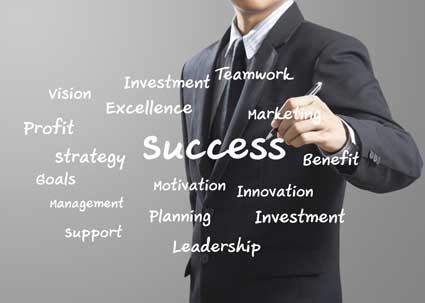We will look at this important part of the business both for the consultant and for the clients of a consultant. We will also look at an overview of the field of management consulting. Let's get started.
CLIENT BUSINESS STRATEGY DEVELOPMENT
A consultant must look at where client need is and adapt to it, providing the service to meet the need. As a consultant looks at the possible market for consulting work, a niche or specialization could be the best way to meet client needs, for example, for clients looking for ISO 9000 certification.
Other consultants will find it best to not specialize and instead provide general services, finding more clients when they have a wide and broad area of experience.
As we look at following parts of this article we can consider the possible work, areas of specialization, and areas of help a consultant can provide.
We must keep in mind that demand and need ultimately decide what the best strategy is.
As we look at the large number and variety of areas where a consultant can help, we can then narrow our focus to a few areas that are typical for consultant work to get an idea of strategies. We will just begin to look at these concepts and provide an overview.
ORGANIZATIONAL PSYCHOLOGY AND RELATED FIELDS
If a consultant specializes in the wide field industrial and organizational applications, the focus of work is to help organizations and clients with productivity and the general working environment. Some areas for improvement could be performance management, succession planning, executive coaching, selection, recruitment, training, and leadership.
These consultants can be internal to the organization or external. The internal consultant is a staff member and can be part of a group of consultant within an organization. The external consultant can be part of a company that specializes in management consulting or is independent. The external consultant typically gets a contract to complete work. Here is a list of possible types of consultants.
1. External consultant in a large firm
2. External consultant in a smaller firm
3. External consultant in a research firm
4. External consultant who is a sole proprietor
5. Internal consultant for a corporation or other organization
6. Internal consultant in a research group within an organization
7. Internal consultant in a government group
Let's review the kinds of services a consultant can offer.
1. Help with implementing, and incorporating change into a culture
2. Work on planning and designing change in a culture
3. Collect information about problems and areas for improvement
4. Help solve problems and address areas for improvement
5. Provide a service such as an audit
The organizations that can benefit from these services include for profits and non profits, public and private organizations, and government organizations.
ARGUMENTS FOR AND AGAINST CONSULTING
Here are some of the pros and cons about being a consultant.
Cons
? Travel
? Uncertainty about future work
? Downsizing
Pros
? Satisfying work with a focus on improvement
? High hourly rates
SPECIALTIES
A consultant can work in various special interest areas within an industry. In industrial and organizational psychology here are some of the possible specialties:
1. Talent recruitment
2. Talent selection
3. Executive coaching
While some consultants specialize in an area, others take a more generalized approach. In either case, skills a consultant needs include:
1. Consultation skills that cover being able to handle the tasks and stages of consulting.
2. Interpersonal skills such as listening, facilitation, communication, and maintaining and building relationship. A consultant must be good at explain to clients about ideas and plans.
3. The ability to learn. A consultant must be a continuous learner who can also adapt to the requests and needs of clients.
TYPICAL WORK FLOW
For a consultant here is an idea of a typical work flow.
Contracting
In this first stage the consultant meets with the prospective client to discuss the client's needs. The contract should cover scope, time frame, roles, responsibilities, and expectations about objectives and targets.
Analysis and data gathering
During this stage a consultant typically uses their judgement about the need to collect data, analyze, and determine the best approach and understanding of areas for improvement and how best to proceed with completing the project.
Planning
At this point the consultant normally analyzes data and presents results to the client. The consultant must communicate clearly what the data shows. The client and consultant together should then discuss what should be the next step.
Implementation
Implementation can be the responsibility of the client. Or it can be the responsibility of the consultant or a shared responsibility. The consultant should at least be present during this stage even if the work is not their responsibility.
Completion
Evaluation of the project happens at this point. The client could decide to extend the contract.
PLANNING FOR THE FUTURE
Consultants must look at the forces that could impact the future of business and business consulting. Here are some ideas about what could impact the future.
1. Customer demands could change
2. Technology could change
3. Competition could get stronger for market share
4. Market conditions could change
5. Competition for talent could change
6. Globalization
7. Costs could change for supplies and services
Let's look more closely now at some of these factors.
Workforce
Changes in the workforce may include some of the following in the list below. The impact could be changes in how talent is selected, recruiting, education, training, and planning for the next generation of the workforce. Change management and learning about new technologies are also issues that could impact the workforce.
1. Aging and a loss of expertise and experience
2. Lack of competency in technology
3. Greater competition for talent
4. Globalization
Technology
For technology consultants, they can tap into the need some clients have to automate processes or data. With automation, employees can focus on doing the work. This consultant can provide:
? Training
? Communication
? Change management control
Consultants can also advise on these related issues.
? Human-machine interaction
? Technology interaction
? Human to human interaction with technology
? Impact of technology on communication
INDUSTRIAL ENGINEERING
If a consultant works in this area they deal with optimizing processes, organization, and systems. You help an organization eliminate a waste of time, money, workforce time, machine time, energy, materials and other resources. Consultants help groups improve quality and productivity. Some of the areas where consulting could help include:
1. People
2. Finances
3. Knowledge and information
4. Equipment
5. Energy
6. Materials
Specialties within the field include:
1. Operations research
2. Systems engineering
3. Manufacturing engineering
4. Management science
5. Human factors engineering
6. Safety engineering
This does not have to apply to an industrial setting and can apply to many operations and organizations. The various topics concerning the field include:
Accounting
Cost engineering
Ergonomics
Facility management
Job design
Operations
Production
Project management
Logistics
Management engineering
Plant engineering
Process engineering
Safety engineering
Supply chain management
Systems engineering
Layout of factories and assembly lines can be part of the work as can lean manufacturing. Some of the work can involve:
1. Flow charting a process and process mapping
2. Designing workstations
3. Looking at logistics
4. Calculating financials
5. Planning distribution
6. Shortening lines
7. Supply chain management
RESEARCH METHODS FOR CONSULTANTS
The consultant can use a number of methods to do research for their clients or help their clients do the research. Research can include:
1. Surveys
2. Observations
3. Questionnaires
4. Experiments
5. Database research
6. Data on sales volume
Techniques can include qualitative methods such as focus groups, interview, and case studies.
LOOKING AT GROUP BEHAVIORS
The consultant can assist organizations by looking at issues and improvements in group behavior. Group behavior involves the interaction between individuals, processes, and elements such as attitudes, opinions, and morale. Team effectiveness is important to get tasks done and having a well functioning organization. Here are elements that contribute to team effectiveness.
1. Process and task design
2. Team composition
3. Team rewards
4. Organizational resources
5. Team goals
Team composition is important so that there is an effective mix of skills, abilities, personalities, knowledge, and attitudes. If members of a team clash, this can reduce performance for the team.
Task design is important to effectiveness. The team needs to determine if members rely on each other or work independently and what combinations lead to maximum performance.
Overall if a team member feels engaged and valued motivation increases and performance for the team improves. Performance also is optimized if the organization properly supports the team. This support includes:
? Equipment
? Training
? Facilities
? Leadership
? Information
? Budget
Rewarding teams
The consultant can point out these guidelines on effectively rewarding teams.
1. Reward those who contribute toward achieving a team goal
2. Individual team member recognition should depend on performance of the entire team
3. Do not reward a team if most of the work was done by one person
4. Create a culture where teamwork is valued with appropriate recognition
5. Select goals for individuals that support the team effort
Job performance
The consultant can point out these actions related to job performance.
1. Evaluate jobs performance involves to how an employee contributes to organizational goals
2. Evaluate what is within the control of the employee
3. Consider dividing job performance into technical aspects of the job and non technical aspects such as communication and being a good team member
4. Establish reliable and valid measurements for job performance
5. Consider that performance can depend on ability, experience, and personality
Motivating employees
The consultant can use these guidelines on understanding how to motivate employees.
1. Understanding what motivates employees is important to maintaining and improving performance and meeting goals
2. Structure the work environment to encourage productivity and motivation
3. Consider how to motivation stimulates an employee to put forth effort toward the organizational goals
Leadership
When looking at leadership here are guidelines a consultant can provide.
1. Define leadership as the process of influencing others to achieve a goal
2. Leadership and management may not be the same while some leaders are managers also
3. Managers take on administrative tasks such a planning and budgeting
4. Leaders inspire and create culture
5. Leadership can focus on the follower, contingencies, and leader
If the approach is to focus on the leader, the organization will rely on this leader and be effective if the leader has intelligence, motivation, influence, perception, and consideration of those who work with the leader. Leader styles can vary and include informational power, legitimate power, reward power, expert power, and coercive power. Tactics leaders use vary and can include pressure, coalition, personal appeal, rational persuasion, and inspiration.
If the approach to leadership is based on contingencies a leader looks at a situation and adapts to fit that situation. This approach puts the focus on the type of goal to be achieved and having the leader fit their style and motivation to the goal and group.
With a focus on the follower when it comes to leadership the idea of team effectiveness is important. This focus can be effective as it is followers who do the work and achieve goals. The leaders to be effective must be aware of the benefits and problems or work in teams, how to satisfy the needs of the members of the team, and how to make performance of the team adequate. In today's work world, this can involve virtual teams. This presents new challenges for teams as members can be in various locations throughout the world. The leader should know how to use technologies to build relationships with these types of team. There may be no face to face interaction.
CONCLUSION AND SUMMARY
We have looked in this article at client business strategy in the context of an overview of the field and a focus on key elements. We looked at how within organizational psychology we could work on a client business strategy. We looked at arguments for and against consulting. We also looked at specialties, workflow for the consultant, planning for future consulting work, research methods for consultants, and how consultants can help clients improve group behaviors.































